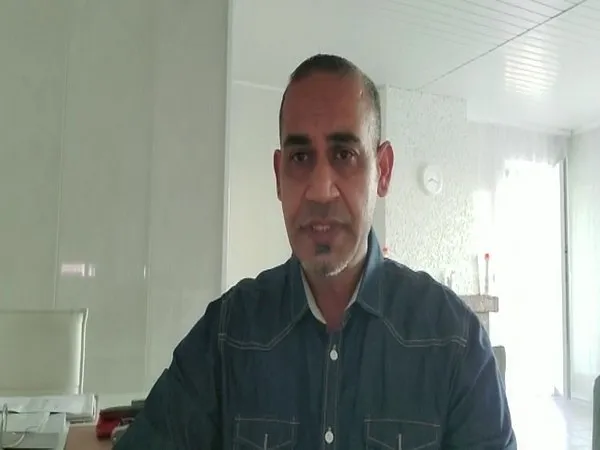Expressing anger toward Pakistan for the increasing number of enforced disappearances in the country, a Baloch activist revealed that Pakistan’s Federal Investigation Agency (FIA) and Military Intelligence (MI) arrested his father without any involvement in any anti-national activities.
In an interview with ANI, the former President of Baloch Republican Party, Germany chapter, Ashraf Sherjan said that his father, 68-year-old Sher Jan was tortured and arrested by FIA and MI at Karachi airport while he was on his way back home from Dubai.
“Due to my political activities, Pakistani security forces arrested my father, when he was travelling from Dubai to Karachi on 13 November 2019 along with my two sisters. My father went to Dubai for his medical treatment, but unfortunately on his arrival at Karachi airport, the Pakistani FIA agency arrested him alleging that he travelled to Germany and Europe. They released my sisters but they took my father,” Ashraf said.
His father was arrested by FIA and handed over to Military Intelligence, who kept him isolated for 4.5 months. Ashraf alleged that his father was kept in a dark room and tortured by Military Intelligence.
“For some 4 months, he remained in the custody of Military Intelligence. During the custody, they inquired about me and my activities. By that time my father agreed with them that he is my son, but I have nothing to do with his political activities”, said Ashraf.
“In the custody of MI, my father was tortured. They kept him handcuffed. For many days, they only provided him with one meal a day. Of course, he was kept in a small torture cell. My father also asked for a lawyer but they ignored his request,” he added.
Ashraf remains an active Baloch political activist in Germany and time and again participated in and organised protests in front of the Pakistani consulate in Frankfurt.
“In August 2019, when the Baloch Republican Party organised a protest in front of the Pakistani consulate in Germany. I also participated in that protest. The Pakistan consulate knew about me because they were tracking me since 2016 till I had my Pakistani passport”, he said.
Ashraf applied for renewal of his Pakistani passport in December 2016 and the consulate asked him about his family details. His passport renewal was later rejected and he was asked to visit Pakistan for the renewal.
“I was sure that if I land in Pakistan to sort out my passport issue then I will be on the missing persons’ list or my dead body will be found somewhere in Balochistan or any other part of Pakistan”, said Ashraf who raised the issue of the enforced disappearance of Baloch political activists and human rights issues in Balochistan during his political activities in Germany.
Ashraf said that many Baloch political activists in Europe and other parts of the world are harassed along with their families back home.
“I am not the first Baloch activist whose family members are targeted. Pakistan’s intelligence agencies are keeping eyes on all Baloch political activists in Europe, no matter in which part of Europe. Their eyes are on their activities and whenever they get any information then the Baloch activists face such problems”, he said.
Ashraf urged the United National Human Rights Council (UNHRC) and other European countries to protect the Baloch Activists living in their countries.
Many Baloch political activists living in Europe and other parts of the world were killed mysteriously.
On 22 December 2020, the dead body of 37-year-old political activist Karima Baloch was found submerged at the Toronto Waterfront.
Earlier, Sajid Hussain, a Baloch journalist was found dead in the Fyris River in Sweden on 23 April 2020.
The forceful abductions are being carried out in Balochistan since the early 2000s. Students are often the most targeted section of these abductions. The victims also include several political activists, journalists, teachers, doctors, poets, and lawyers.
A Canada-based think tank, International Forum for Rights and Security (IFFRAS) reported that there is not even a single-family in the province whose member or a relative has not been forcibly disappeared,
Enforced disappearances are used as a tool by Pakistani authorities to terrorize people who question the all-powerful army establishment of the country or seek individual or social rights.
The report suggests that it is a crime that is often used by the authorities to get rid of people that are considered a “nuisance” without any arrest warrant, charge or prosecution.
Tens of thousands of Baloch people have been kidnapped by the Inter-Services Intelligence (ISI) and Pakistani Army personnel in the last 20 years, the report added.
Several victims have been killed and dumped and it is believed that many of them are still confined in the Pakistani torture cells.

